Google Maps has long been a great way to better understand how neighborhoods on Earth fit together—but yesterday, the site decided to take mapping out of this world, adding 12 new planets and moons for visitors to explore. The update comes shortly after this summer's announcement that the International Space Station could be explored through the site.
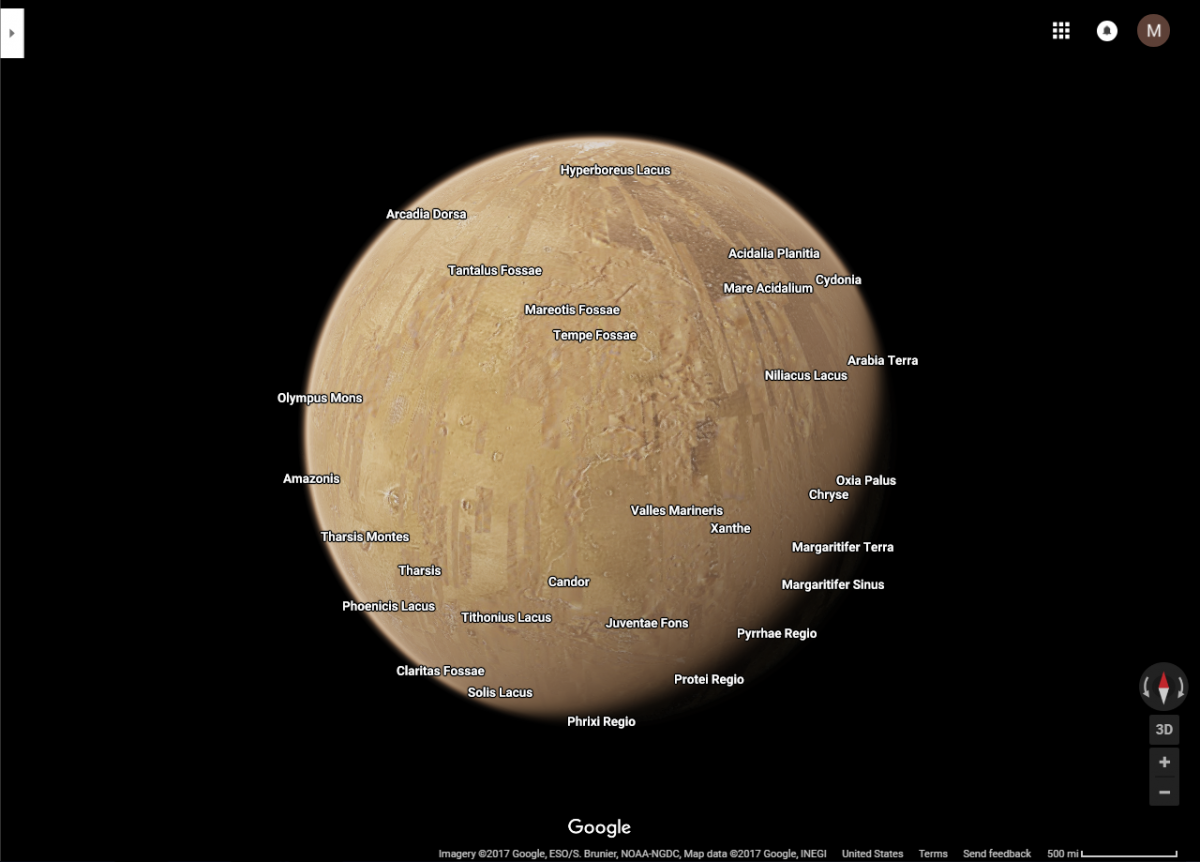
To access the feature, you are likely best off starting from the specific extraterrestrial Google Maps URL, although you can also scroll out from the maps landing page. Either way, you'll start your journey, as is fitting, with a beautiful view of our own planet and the Milky Way that surrounds it.
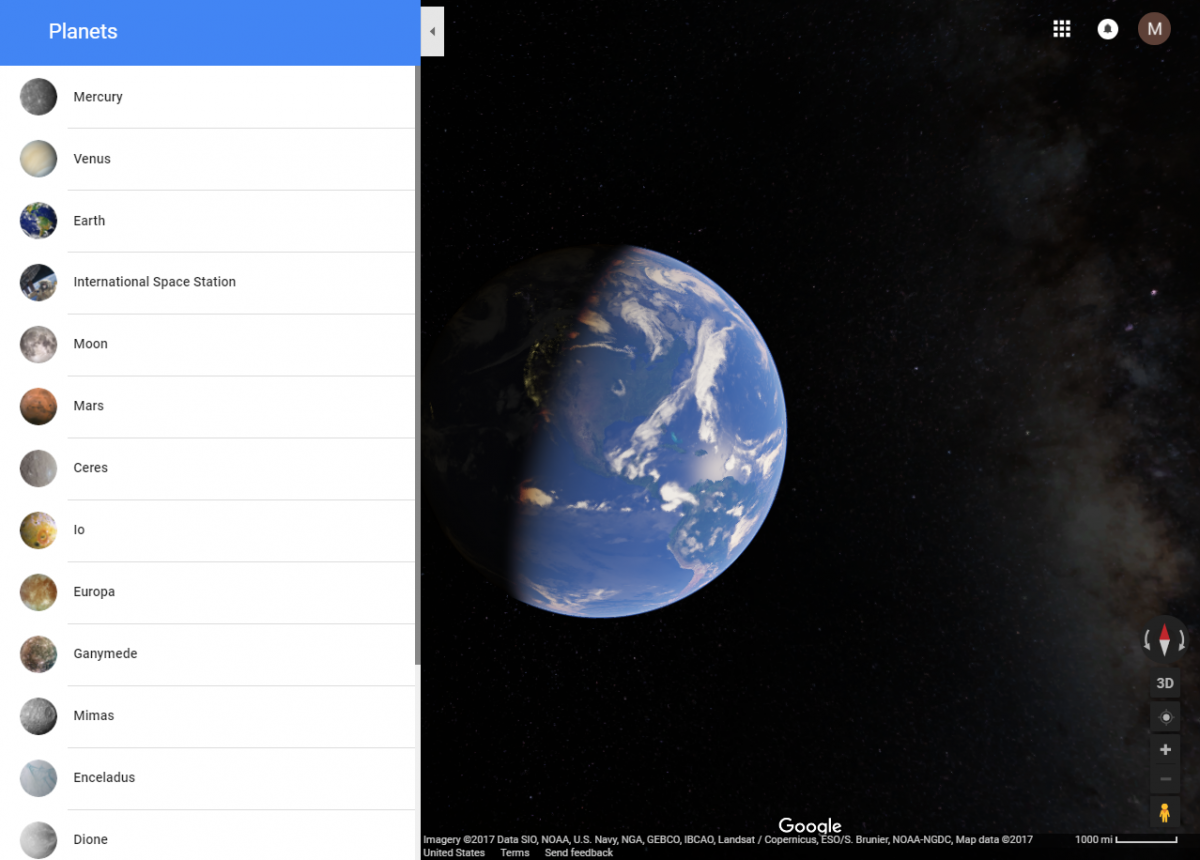
Just don't try to simply search for the world you'd like to visit; that does not quite get you where you want to go.
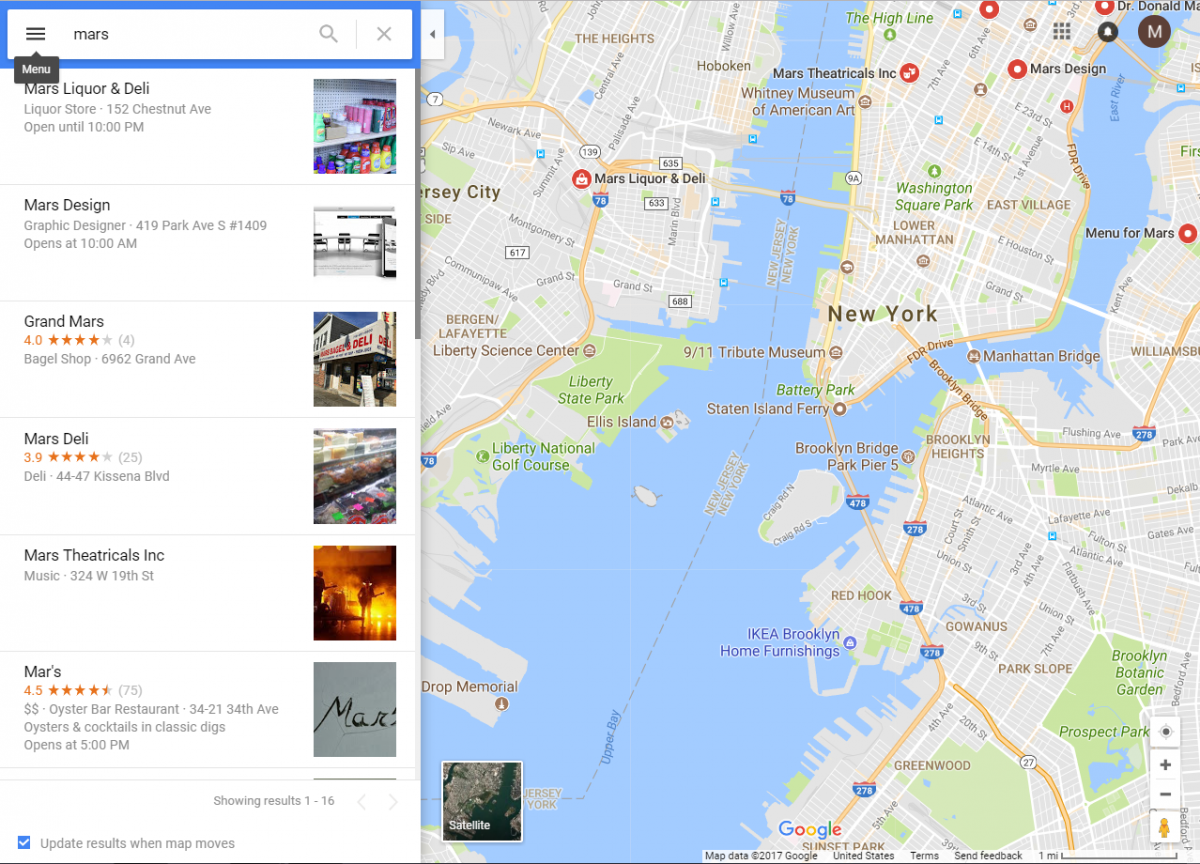
All told, there are 17 worlds to explore from the new hub, including the four inner planets and Pluto, the International Space Station, 10 moons and the asteroid Ceres.
The gas giant planets Jupiter, Saturn, Uranus and Neptune are not included, presumably since the features our spacecraft see as they zoom over them are the clouds of their thick atmospheres, not any sort of surface.
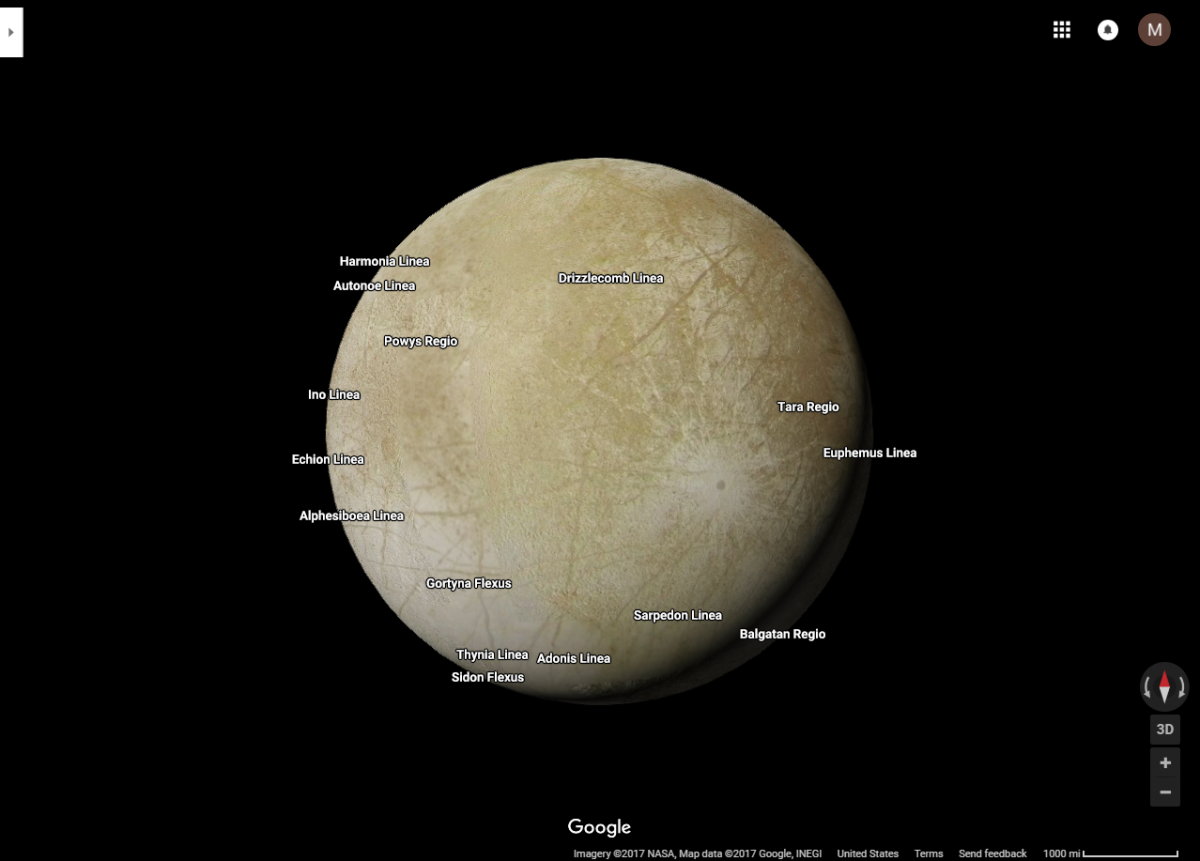
But these giants are left out completely. Several of their most scientifically intriguing moons are featured in the new initiative, including Jupiter's Enceladus and Europa and Saturn's Titan, all of which scientists think may be host to the characteristics needed to foster life.
That said, the update isn't all about fame—Google Maps has also chosen to include little-known moons like Saturn's Dione and Jupiter's Ganymede.
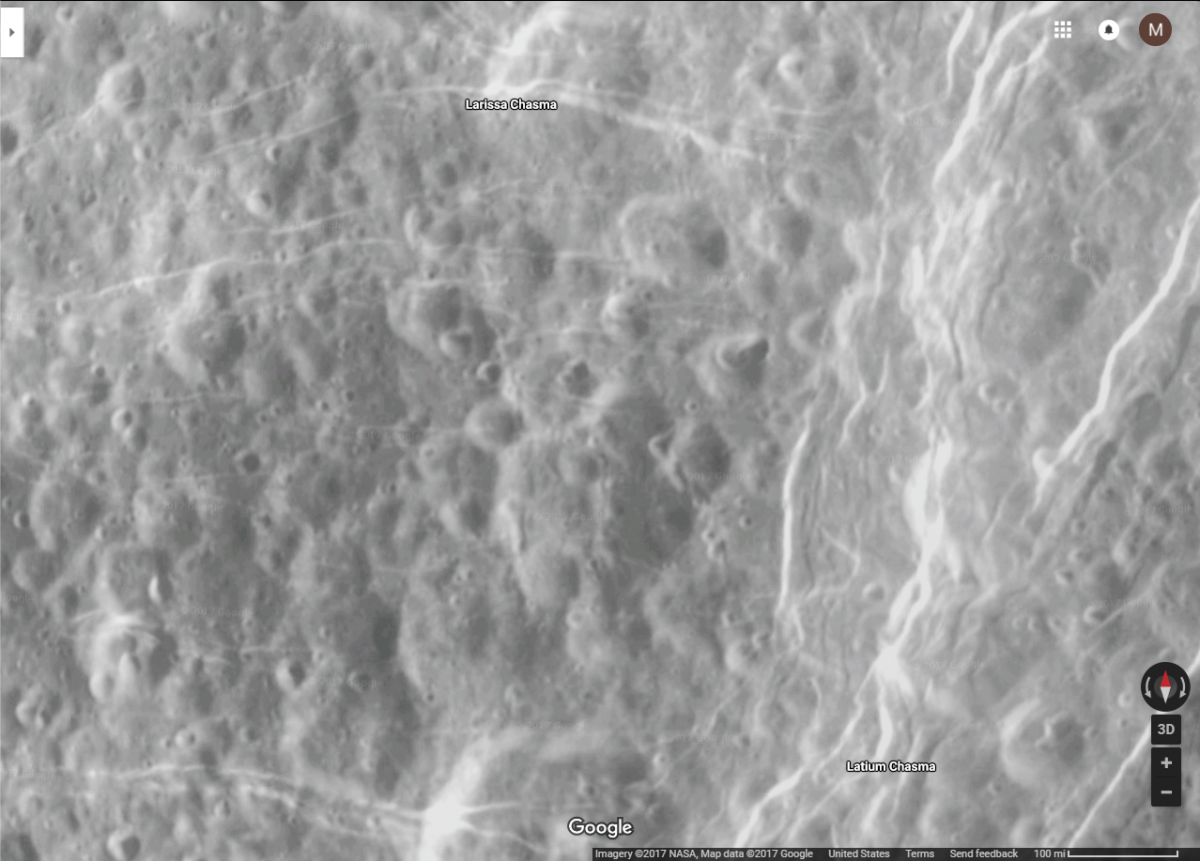
These both deserve a moment in the spotlight: Dione may feature an underground ocean and Ganymede is such a large moon it actually dwarfs the tiny planet Mercury.
Google Maps has also input information about many of the features it flags, like their dimensions and the origins of their name—the closest extraterrestrial equivalent of all the information we're used to pulling from the site about our favorite Chinese restaurant's opening hours.
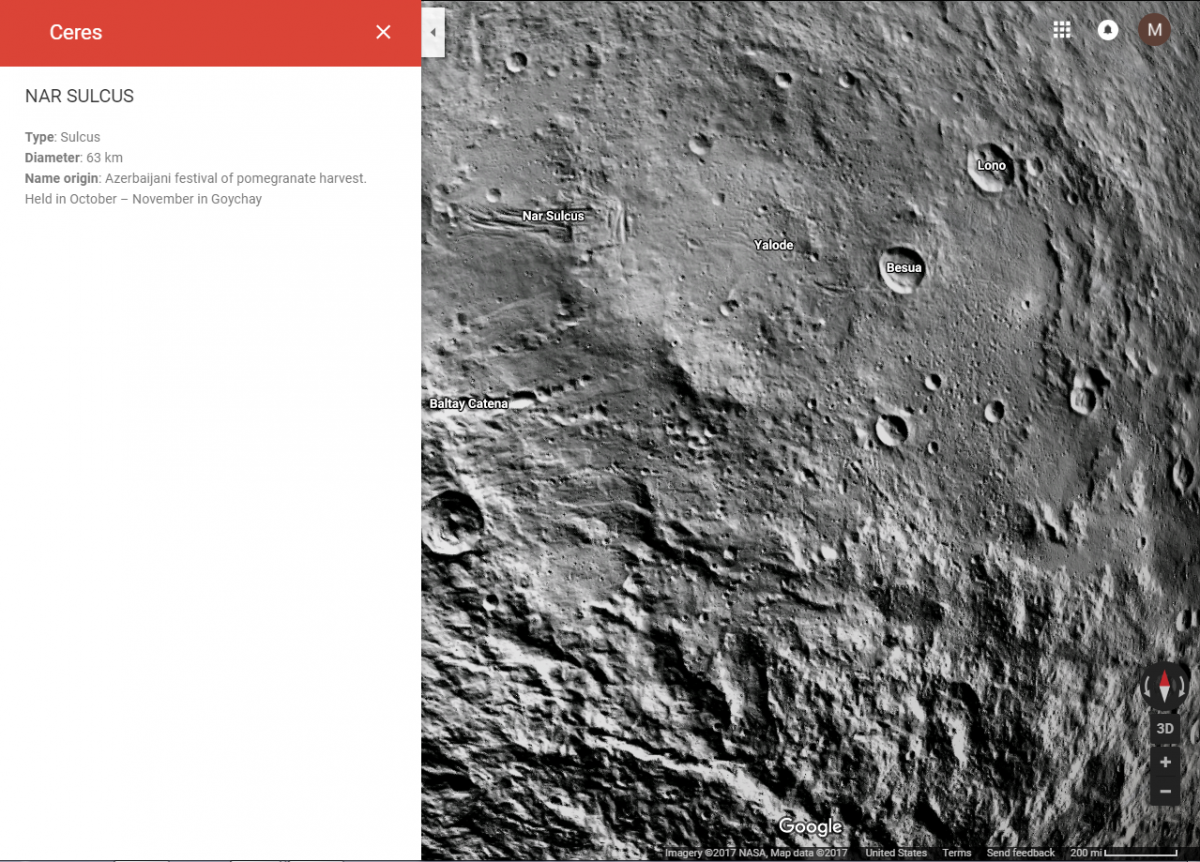
Be aware that street signs in your new neighborhood are still subject to change. Pluto, for example, only has 14 officially named features, since all names in space must be vetted and approved by the International Astronomical Union. These names were proposed by scientists on the New Horizons team that flew by Pluto in 2015 after public input.
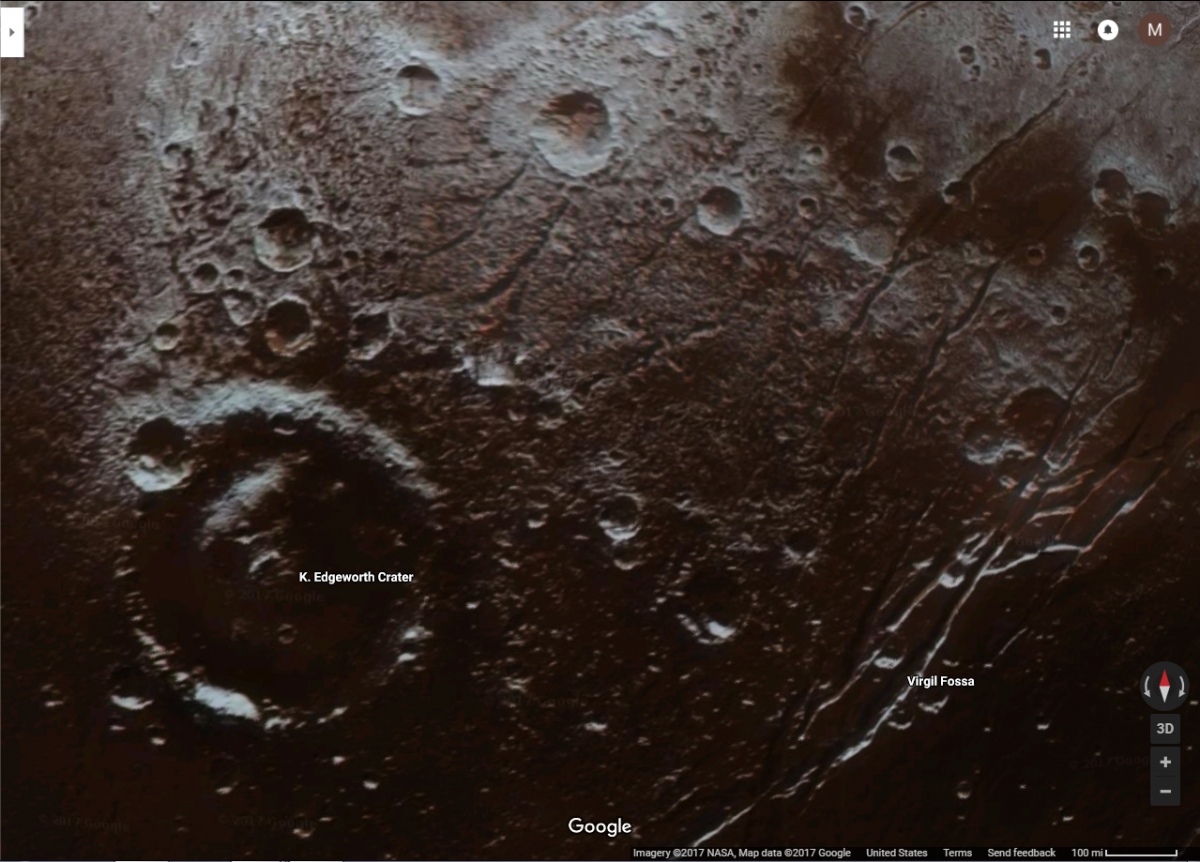
But if you're new to the neighborhood, there's nothing like being able to explore without getting sore feet.
Uncommon Knowledge
Newsweek is committed to challenging conventional wisdom and finding connections in the search for common ground.
Newsweek is committed to challenging conventional wisdom and finding connections in the search for common ground.
About the writer
Meghan Bartels is a science journalist based in New York City who covers the science happening on the surface of ... Read more
To read how Newsweek uses AI as a newsroom tool, Click here.








